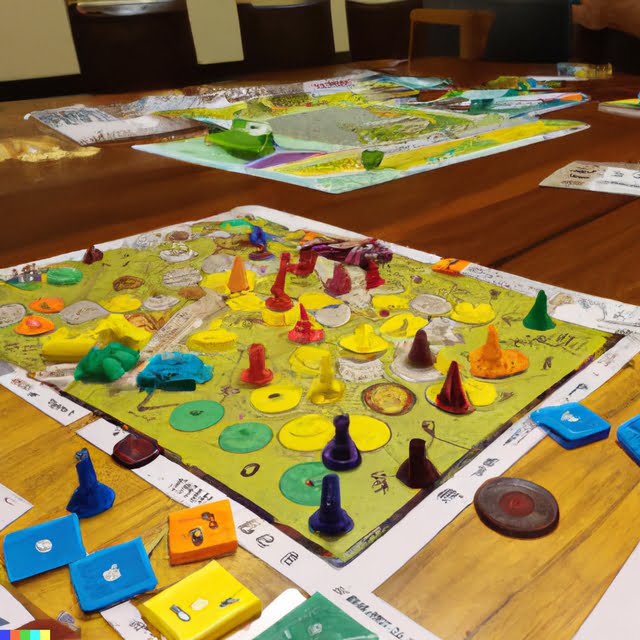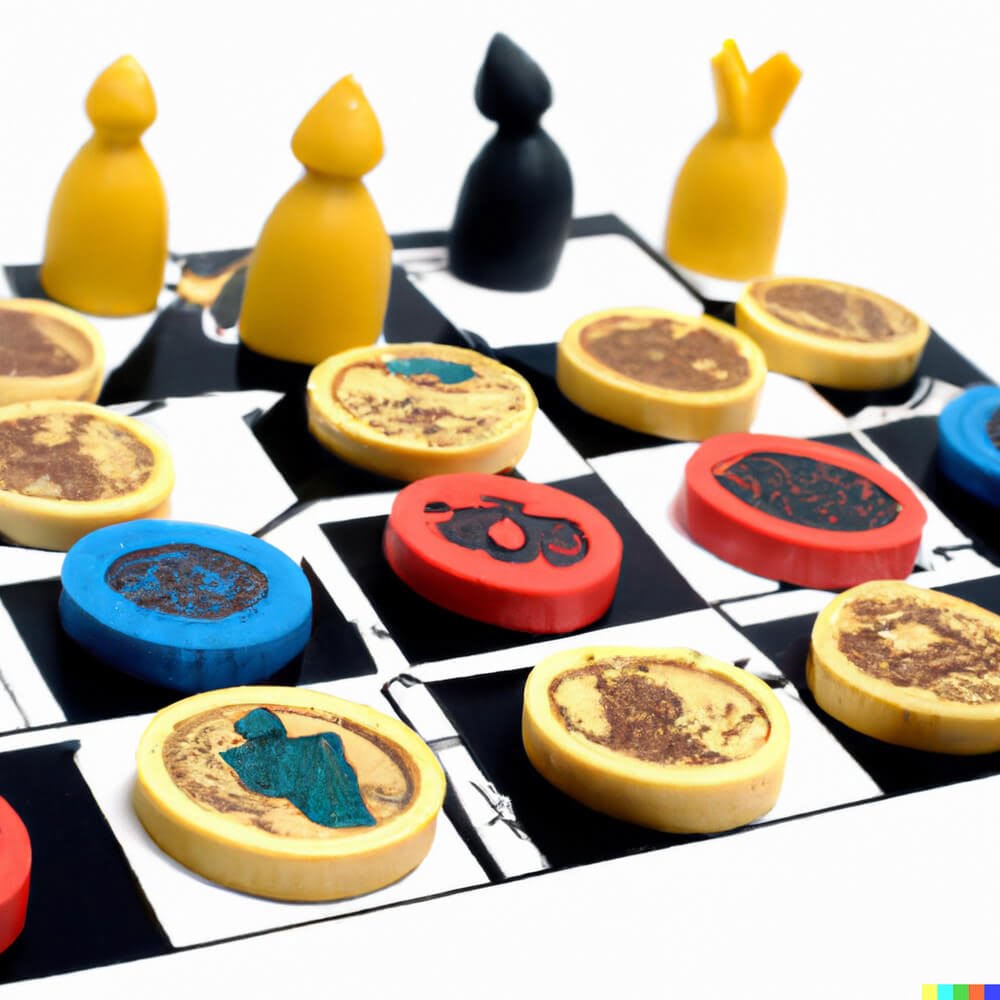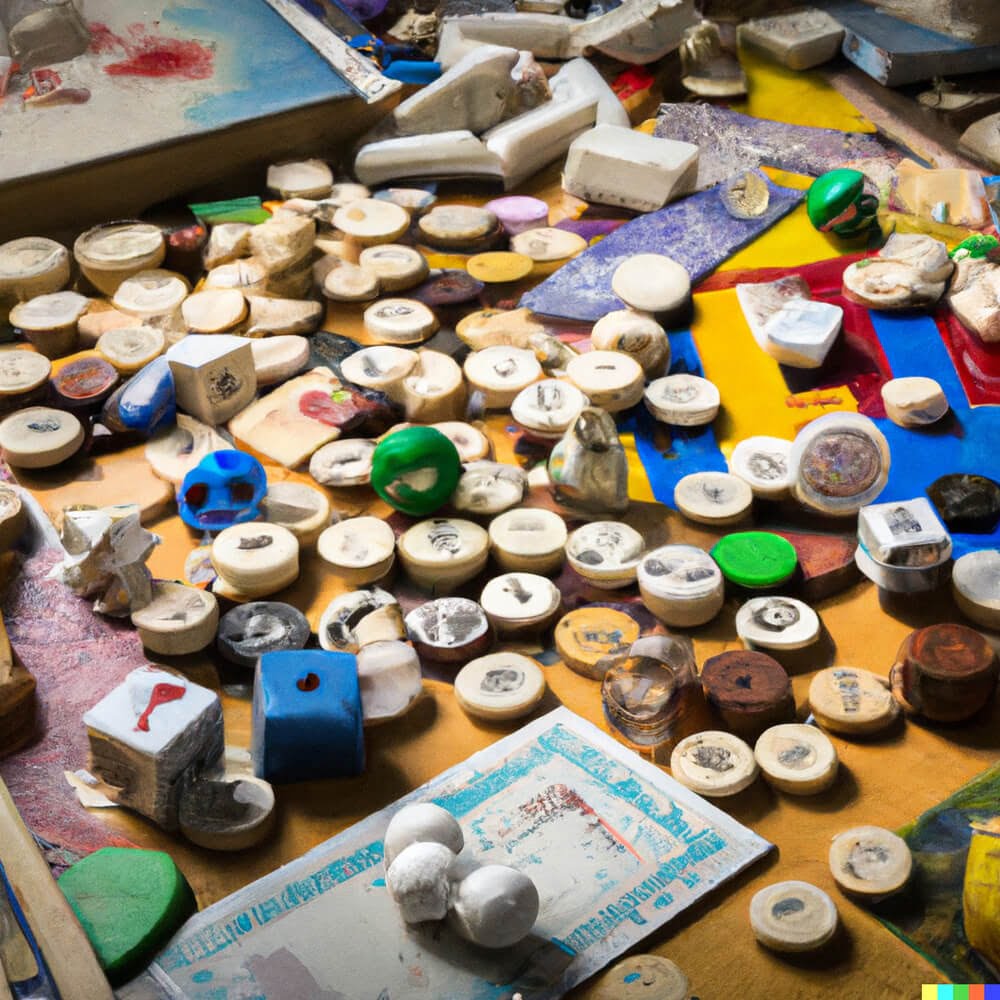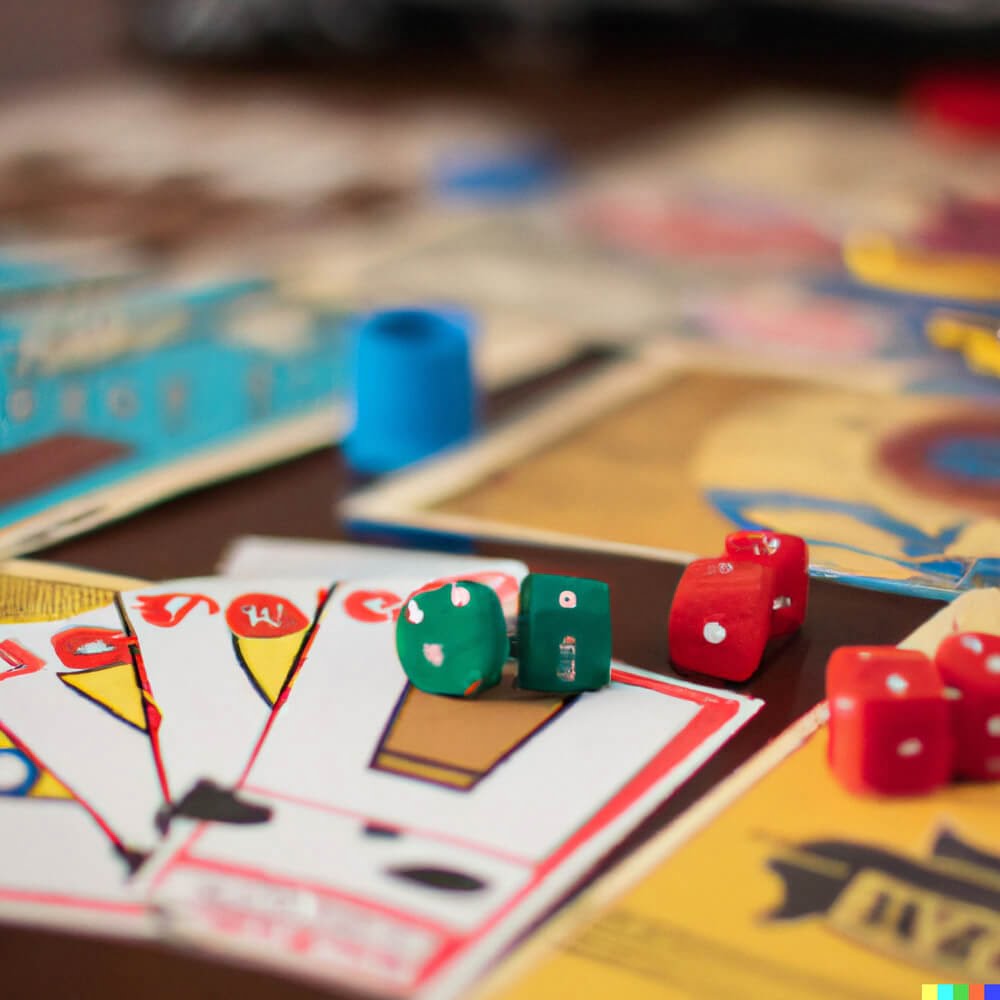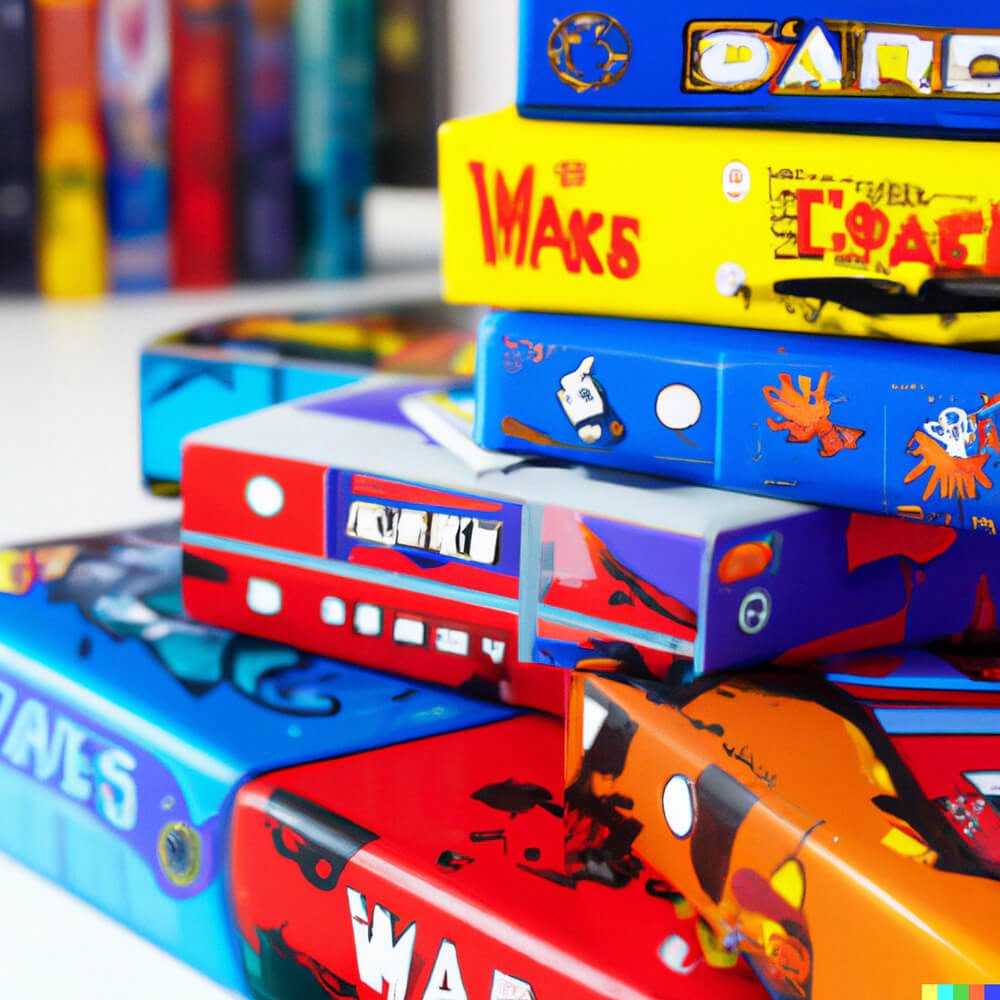Introduction
Having a good name for your board game is essential as it not only helps to capture the interest of potential players, but also serves as a way to communicate the theme, stories and characters of the game. A clever board game name can help to create an immersive experience for all players ” for example, a word such as ‘Conquest’ may conjure up images of battles and heroic deeds, while ‘Fanfare’ could suggest joyous celebrations. Furthermore, having an eye-catching title will make your game more appealing to those who are considering purchasing it in the first place.
When coming up with a name for your board game, it is important to keep two things in mind; firstly that it represents its core idea/theme accurately and secondly that it stands out from competitors. Consider any fun puns or clever symbology associated with your gaming world ” this can add flavour to the title. It might be worth looking at some other well-known games for inspiration – you want yours to have an identity of its own! Researching successful board game names may also provide ideas on how you could structure and format yours to make sure it stands out on shelves.
Additionally, once you have chosen a suitable option, always consider whether there are any legally binding implications associated with copyright or trademark law so that you do not incur any legal disputes over using specific words or phrases that have been trademarked by another company/person in future.
Knowledge Gathering
Before deciding on a board game name, it is important to understand the game’s genre. If the game is a strategy game such as chess or checkers, the title should reflect its depth and complexity. On the other hand, if your board game is based around a certain theme, then it would make sense to choose something that corresponds with that topic, like “Pirates of the Caribbean” or “Jurassic Park.”
It is also worth researching potential names through literature, films and TV programmes related to the game’s theme ” these can provide great inspiration for clever wordplay or pun-based titles. Additionally exploring brand names associated with similar products could open up interesting connections for players who are familiar with them. For example, if your board game is inspired by characters from Harry Potter then you might consider incorporating terms associated with Hogwarts or Wizarding World in the title.
Finally, customers will quickly realise whether your games fits into a particular niche market based on its name so ensure your chosen handle accurately reflects what is waiting for them when they start up the box. Though there’s no pre-requisite as to how long an ideal board game title should be, every character counts when it comes to making an impactful impression ” so make sure you create something memorable!
Creative Techniques
Some of the most successful board games are named in a way that evokes an emotion or creates intrigue. For example, if you’re creating a fast-paced game centered around street racing, you could consider naming it something like Accelerate or Race Through the Streets. This type of name immediately tells potential players what the game is all about and gets them excited to play it. Of course, there are other creative techniques that can be used when coming up with a board game name.
One technique is to look at what other industries are doing for inspiration. Many popular products today are given names that emphasize their brand identity and/or benefit, such as Apple’s iPhone or Microsoft’s Surface Pro. This can be applied to board games too ” think about how you want your game to be perceived by potential buyers and then come up with a name that conveys this message clearly. Words like ‘speed’ and ‘thrilling’, for example, would make sense for a racing game while words like ‘solve’ and ‘adventure’ could work for an escape room type game. If your game falls into more than one genre, try combined words together ” perhaps something like ‘Thrillville’ or ‘Sprint Quest’.
Brainstorming
Creating a unique and interesting board game name can be one of the most challenging aspects of designing a board game. Here are some tips to help get you started:
1. Brainstorm ideas: Start by writing down a minimum of five words that describe the major elements of your game, such as its subject matter, setting, theme, or story hook. Try playing with those words by combining them and adding in other descriptive terms like adjectives (e.g., beautiful, dangerous), adverbs (e.g., quickly, awfully), verbs (e.g., race, battle), or proper nouns (e.g., Alice & Bob).
2. Look for inspiration: Sometimes it’s helpful to let others do part of the work for you! Look at books or movies in the same general genre as your game idea to see what sort of names they use. You might come across something that fits just right!
3. Do an online search: Doing an online search is sometimes necessary when you’re running out of ideas; type words related to your game idea into a search engine or search through dictionary definitions and synonyms to find terms you hadn’t thought of yet but could help inspire new ideas.
4 Use feedback: Ask friends and family members who haven’t heard anything about the game concept what they think of the names you’ve chosen so far ” getting honest feedback from outside sources is always helpful for gaining more clarity on which way to go with your name selection!
Word Combinations
One of the most important parts of making a board game is coming up with a name. The perfect game title should capture the essence of the game and be easy to remember. One way to come up with a great board game name is through word combinations. Here are some tips for creating an eye-catching board game name with words fit for any genre:
1. Use alliteration. Alliteration gives your title rhyme, rhythm, and memorability”all key ingredients in a great board game title! Examples include Clue Clans or Crazy Carpets.
2. Add Weird & Whacky Wordplay. Punny phrases can be fun and attention grabbing, making them perfect for a whimsical board game name! Consider something like Cataclysmic Construction or Epic Expedition.
3. Don’t Forget Story keywords. Adding elements of your plot to your title will give you instant context that players will get excited about! Think Fantastic Ferns or Secret Stonehenge.
4. Include Fun Facts & Figures. If real world facts, statistics, and figures relate to your story or gameplay, try incorporating them into the board game title for additional mystique and intrigue. Consider Capital City Quest or Martian Marathon Madness as two possible examples!
Families who are looking to find their own special board game name should consider coming up with acronyms that represent particualr characteristics of the game; perhaps CCC could mean Colorful Corner Challenge, while JPP might refer to Jungle Princess Palace! There are also options to use clever catchphrases or play on certain phrases that might be related to their character’s plot line when creating their very own unique boardgame name. For example the phrase ‘The Fox Says’ could become ‘The Foxy Game Says’ when it comes timeto assign it one final, amazing title!
Short-listing
Once you have your brainstorming session complete, it’s time to start paring down the list of potential game names. Going through the list, try to pick out the best and most creative names from the ones that were listed. Keep in mind any potential rules or marketing points that could be associated with a particular name. Additionally, think about whether the name is easy to remember so anyone who hears it will be able to recall it later on. You can also do some trial runs such as asking groups of people what they think of the proposed names or displaying them online and getting feedback in order to narrow down your list even further. Ultimately, have fun during this process involves two important steps: creativity and good judgment! Finally, once you find that perfect name for your specific board game project you’re ready for production!
Polling for Opinions
When you are making a board game, it is important to come up with a name that accurately conveys the spirit of your game. Coming up with the right name for a board game can be difficult but polling for opinions from your peers and beta testers can help. Start by brainstorming potential names for your game and then share them with trusted sources, like friends, family or fellow design experts. Ask them to evaluate each one and provide feedback on what associations they have and which names they think best capture the spirit of your game. Keep in mind that different people can associate different meanings with words so it’s important to get feedback from a range of people who you feel represent the target audience for your game. With this feedback you can then narrow down your list and make an informed decision about which title would lead to the most effective branding of your board game.
Narrowing Down
Once you have amassed a list of potential names, it’s time to start narrowing down the contenders. Compare each name side by side, and analyze them in terms of their memorability, appropriateness to the genre of your board game, and originality. Pay attention to how complex and difficult a name might be for someone to try and remember, since this could potentially hurt your game’s recognition. Additionally, consider the visual appeal of the names” would it look good printed on a box? Would the image it conjures up for potential buyers be appropriate for your game?
Give some critical thought to both conventional wisdom and outside-the-box ideas as well; one of your most unusual suggestions just might end up being the most appropriate choice. On top of that, be sure to obtain feedback from other people ” friends or family members who share opinions can be invaluable resources here! ” so you don’t overlook something important when choosing between different titles. Finally, try using reference websites such as Thesaurus.com or Merriam-Webster Dictionary Online if you feel like any existing names could still use some sprucing up; these sources can help you find unique words that will take your board game name to new heights!
Finalizing
After deciding on the perfect name for your board game, it is time to make it official. Depending on the nature of the game, there are several different steps that you must take to officially register and protect your name in countries worldwide.
The first step is to figure out which jurisdiction you should file for protection in. If you plan on selling a physical version of your game internationally, it may be wise to consider filing trademark applications in each country where you intend to manufacture or distribute the product. It’s important to remember that trademark registration is only effective within each specific jurisdiction; therefore global protection can be difficult to achieve.
The next step is filing an application with the appropriate office in each country. For example, in the United States this would involve filing a federal trademark application with the U.S Patent and Trademark Office (USPTO). Similarly, if you wanted official recognition of your board game name outside of America, then you would need to apply internationally through organizations like World Intellectual Property Organization (WIPO). Be sure to do ample research into local laws and regulations as well because these can have a heavy impact on how quickly and easily your name will be approved
Finally, after all the legal paperwork is completed laboriously complete, done correctly, and filed properly your board game name has officially been set! Congratulations! You are now ready for production!
Conclusion
Creating a board game name that appeals to an audience can be a difficult task, but it’s an important one. Not only does your game’s title have to sound intriguing and exciting, but it should also offer potential players an insight into the kind of fun they can expect. An effective board game name is essential for triggering interest in consumers and boost sales. Picking the right title also helps build anticipation for its release as well as entices people to comment on it from the moment you start advertising.
Ideally, a board game name should communicate its genre clearly, give away some hints about its story or mechanics, and help differentiate it from other titles so that it stands out among gamers both online and offline. Once you find something you like, make sure you register it with the appropriate authorities to protect your intellectual property.
Knowing how to pick the right board game name can be vital for increasing audience engagement which is key to success in rising markets, such as those brought by crowdfunding campaigns and digital gaming platforms. Getting reviews and attracting users who are eager to try out your product are both dependent on whether you managed to identify a great game title. It doesn’t have to be complicated; just make sure that it has broad appeal so that no one has any doubts about what they will find when they actually start playing your creation!

I love playing all kinds of games – from classics like Monopoly to modern favourites like Ticket to Ride.
I created this blog as a way to share my love of board games with others, and provide information on the latest releases and news in the industry.

